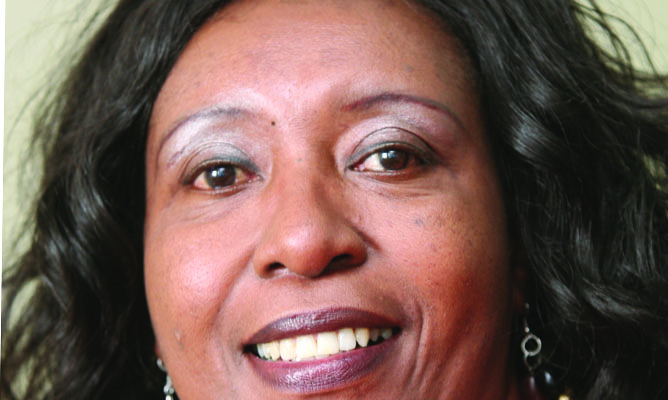
Saturday Dialogue Ropafadzo Mapimhidze
This is a population that has suddenly been left without immediate access to urgent medical care, just like what is happening in a growing number of communities nationwide.
The death of this young man is one of the many incidents happening in and around Buhera, where things seem to be falling apart at Murambinda Mission Hospital, following withdrawal of funding and health personnel from Medecins Sans Frontieres (MSF).
Patients are now travelling to Mutare General Hospital, which is about 165km away, an exercise that has proved costly for the majority of the inhabitants of this drought-stricken district, which lies in Manicaland province.
Reports indicate that the situation is very desperate, as patients are now being given prescriptions to buy medicines from pharmacies, which most rural folk cannot afford.
The hospital, which also ran a successful HIV programme that was jointly managed by MSF and the government, was a lifeline for many in the district and for those from nearby districts.
For many HIV patients, the availability of anti-retroviral drugs (ARVs) has made life easier and prolonged their lifespan.
The hospital is a referral hospital for 29 clinics in the district, which has a population of nearly 300 000 people residing in four constituencies and 33 wards.
- Chamisa under fire over US$120K donation
- Mavhunga puts DeMbare into Chibuku quarterfinals
- Pension funds bet on Cabora Bassa oilfields
- Councils defy govt fire tender directive
Keep Reading
The burden of sickness had become easier to bear because most of the inhabitants, who work and live in cities like Harare, Mutare, Bulawayo and Mutare had been receiving medical attention at Murambinda Mission Hospital, whose fees were affordable.
Unconfirmed reports indicate that the Buhera Rural District Council has appealed to the Buhera Development Association, alerting them of the dire situation that has befallen this medical institution.
Press reports, which are yet to be confirmed, have also said villagers are unhappy about alleged corruption at the hospital, where patients are made to pay for drugs that are supposed to be free.
They also allege that they are made to wait for long hours in queues before they are attended to, something that never happened when MSF was assisting the institution.
MSF started operating in Murambinda in 2003, where they also ran a nutrition programme, which they later handed over to the government in 2009 following a robust improvement in nutrition levels among the villagers.
Since the treatment was decentralised to other outlying clinics in the district, patients no longer slept in queues at Murambinda Mission Hospital, as has become the case today.
Reports from Buhera indicate that drugs have run out at the hospital, hence, patients are now being given prescriptions to buy medication from privately-owned pharmacies, which sell drugs at amounts most villagers cannot afford.
The main objective of this hospital was to provide a good secondary health care, with emphasis on maternity care, tuberculosis and HIV and Aids.
Built by the Sisters of the Little Company of Mary in 1968, under the endorsement and supervision of the Roman Catholic Archdiocese of Harare, Murambinda Hospital is administered by the Health ministry.
A school of nursing that is affiliated and sits adjacent to the hospital is also owned and administered under similar arrangements by the Roman Catholic Church in conjuction with the government.
The hospital has at least 200 beds and is the only such institution in Buhera district.
Technically, the government is expected to provide subsidies and financial assistance, although sometimes that assistance never comes, hence, this hospital had managed to survive through donor funding.
Hospitals in Zimbabwe are unevenly distributed, necessitating the need for mission hospitals like Karanda in Mount Darwin, Howard in Chiweshe and All-Souls in Mutoko, which tend to bear the burden of what the leading hospitals in the country should carry, because they offer a service that is affordable and satisfactory. There is reason for concern that the trend will escalate.
The situation isn’t, however, much better in cities.
In many communities around the country, hospitals are one of — if not the — largest employers.
Consequently, there are undoubtedly economic issues that would befall an area if its hospital failed to offer the most basic medical treatment. The logic is fairly straightforward: If a hospital fails to attend to its citizens, it reduces access to certain types of care. If access to care is reduced, people’s health suffers.
The situation, as it stands, Murambinda Mission Hospital is as good as closed, because there is not much that is being offered in terms of basic medical treatment.
Lifestyle-related illnesses are more common in the rural areas, hence, Murambinda Mission Hospital was particularly well-known for its effective and excellent treatment of communicable diseases like TB and HIV and Aids.
However, although the majority of Zimbabweans live in rural areas, access is the major health issue because resources are concentrated in major cities.
Many rural and remote communities bear the cost of global change without the commensurate benefits.
All of these issues are accentuated in the context of often serious shortages of doctors, nurses and other health service providers in rural and/or remote areas.
Murambinda Mission Hospital requires sufficient numbers of doctors and other health care providers, who have the necessary skills to work effectively and comfortably in these areas.
Murambinda Hospital was a marvel and a spectacle for Buhera residents and it is imperative that all stakeholders sit and discuss ways and means of bringing operations at this institution to full throttle.
Feedback:[email protected]











